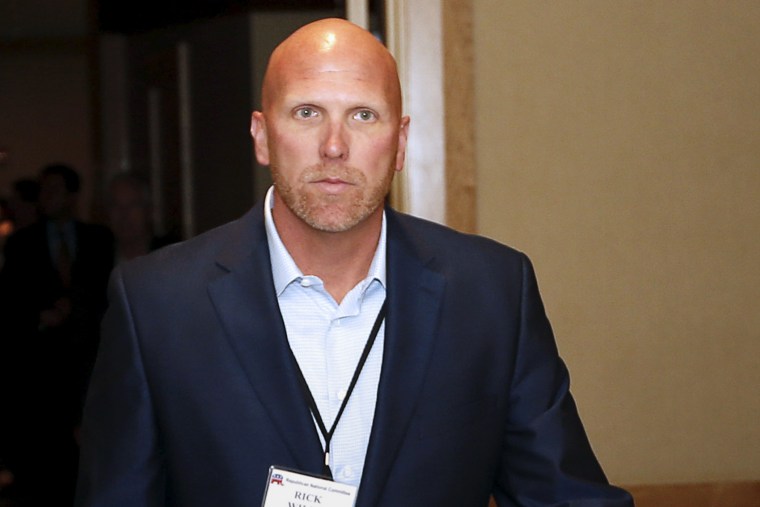Just six weeks ago, Donald Trump's campaign announced an important new hire: it was bringing on Rick Wiley, Scott Walker's former campaign manager, to serve as Trump's national political director. That was April;
this is May.
Trump National Political Director Rick Wiley is no longer with the team, the campaign confirmed in a statement late Wednesday night. When asked if Wiley resigned or was fired, spokeswoman Hope Hicks said that the "statement stands alone." A Trump campaign source with knowledge of the decision tells NBC News that Wiley was largely uncommunicative with field staff that were in place long before he was hired. "He never really got the read for this campaign," the source said, referencing the campaign's culture.
By all accounts, Team Trump is divided into two warring factions: a contingent that sides with Campaign Manager Corey Lewandowski and another backing Campaign Chairman Paul Manafort.
A source close to the campaign told NBC News that the Riley announcement is "a win for Corey."
As a rule, it's tough to care about which faction is up or down on any given day, but there is something important about the larger dynamic. The
Huffington Post's Howard Fineman, a veteran political reporter who's seen a lot of campaigns come and go, yesterday
described "TrumpWorld" as "a seething mosh pit of ambitious egos."
I don't think it was a compliment. Indeed, consider
this Politico report, published yesterday morning, hours before the news about Riley's departure:
The internal struggle for control of Donald Trump's presidential campaign is getting personal, with allies of feuding campaign manager Corey Lewandowski and chairman Paul Manafort increasingly turning to shadowy tactics to try to sully their rivals. The battle, which was already toxic even by the standards of notoriously vicious internecine presidential campaign spats, escalated last week, even as Trump moved to clarify the official hierarchy atop his campaign by creating a new position — campaign chairman and chief strategist — for Manafort.
An operative close to the campaign described the operation as "a total cage fight."
Sure,
some divisions are inevitable in a campaign, as are
staffing changes, but when was the last time a successful presidential campaign operation was compared to a "cage fight" and a "mosh pit"?
And more to the point, what does this tell voters about the kind of White House and administration Trump expects to lead?
Politico's Glenn Thrush
tweeted last night that if this staffing drama were happening at Hillary Clinton's headquarters, we'd be hearing quite a bit about the "Hillary Meltdown" and the Democrat's horrible management skills. It's a fair point. How long until Trump starts hearing these criticisms?
